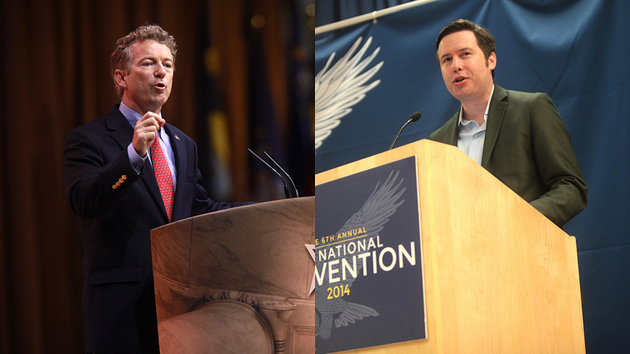
¯\_(?)_/¯ Rodger Mallison/Fort Worth Star-Telegram/ZUMA
Republicans had a pretty good night last Tuesday. They won control of the Senate and added to their already-sizable House majority. They now hold 33 governors’ mansions and 69 of the 99 state legislative chambers. But even as they solidified their grip on state governments, they came up short in one red state they’d trained their sights on—Kentucky. And that’s bad news for Sen. Rand Paul.
While the national GOP’s resources primarily targeted the state’s Senate race, Paul focused his attention on winning control of the Democratic-controlled Legislature in Frankfort. His reasons went beyond mere party loyalty—he wanted a GOP statehouse majority to pass a bill, written with him in mind, that would allow a politician to run for Senate and president in the same year. He’s up for reelection in 2016, and is also seriously considering a White House bid. But given the depth of the GOP presidential field that year, he doesn’t want to bet the house on winning the nomination.
For Paul, a.k.a. the best-dressed man in Washington, this is hardly a deal-breaker. He got some good news on Wednesday, when Sen. Mitch McConnell, whom Paul dutifully backed in the face of a tea party primary challenge, all but endorsed his presidential bid. And if Paul were to drop out of the race early (say, in the face of an unstoppable Mitt Romney wave), there’d be plenty of time to get back into Senate reelection mode. But the longer he stays in the hunt, the more difficult things will become on the home front.














